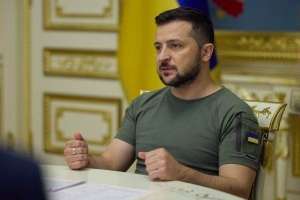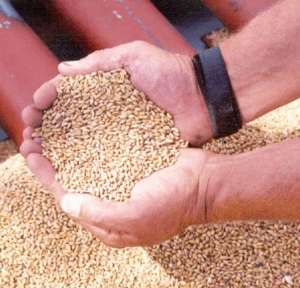Reporter: Your Excellency, how would you describe the economic and diplomatic relations between Romania and Iran?
Morteza Aboutalebi: The relations between our countries are good. Iran has had historic relations with Romania, for 5-600 years, and over the last 100 years they have been promoted by both countries. After the Iranian revolution, the situation between the two governments and our people has been good. Today, we are trying to improve our relations. Also, we seek to improve aspect of the relations between the two countries, not just on the economic side, but also culturally, politically, in the public and private sector, we are trying to develop and promote all of them.
On the political side as well, the relations are good. Various authorities in Iran have visited Romania and vice-versa. It is a habitual behavior from both sides to keep in contact, to exchange ideas, various positions concerning certain aspects in areas which could be of interest.
I also hope that through the program followed by the Iranian Embassy to encourage and promote the relations between our countries. I hereby want to have even better relations in various areas, especially on the cultural and economic side and I think that the developing the relations between our countries will continue.
Reporter: What are the main areas in Romanian that attract investments from Iran? And what Romanian investments exist in Iran?
Morteza Aboutalebi: The cooperation between our governments and people is good, as I sad, particularly in the cultural side, and we are pushing the economic relations, both in the private and public sector towards a better development.
Historically, we have a kind of investments especially in agriculture, we have various projects in Romania. There are a few Iranian companies present in Romania for 30-40 years that have made investments here, and their turnovers exceed 700 million Euros a year, as far as I know. There are also smaller companies. In general, the focus of Iranian investments in Romania has been agriculture.
Speaking about Romanian investments in Iran, they are mostly present on the oil and gas market, even if they have a different method of investing, we are talking about financing. Other such investments exist in electricity and energy.
Reporter: What is the amount of commercial trades between Romania and Iran?
Morteza Aboutalebi: Last year, the total amount of the commercial trades has amounted to 335 million US dollars. Romanian exports to Iran have amounted to approximately 287 million US dollars, and imports to about 48 US million dollars. We do not have yet statistics for this year.
Reporter: How do you see the business sector in Romania?
Morteza Aboutalebi: I think that in Romania the business sector is influenced by two sides - the national one, supported by the Romanian government, and the second one which comes from the European Union. We are trying to draw advantages from both of them and we believe there are many opportunities and facilities, not just for Iranians, but for other foreign investors as well, to come to Romania and to develop their businesses.
As for the areas which I belive will have good prospects for the future in Romania, taking into account the advantages that your country has, I feel that agriculture represents the main priority, followed by industry, in particular the automotive sector, as well as IT, but I also see some opportunities concerning the foreign investments which are currently present in Romania and which foreigners can come in and acquire and continue with them, through new methods of management or technology.
Reporter: What is Iran's view on the US exiting the nuclear deal? Do you see a solution to that situation?
Morteza Aboutalebi: In this nuclear deal, we, the Iranian side, have tried to solve some of the problems that have existed in the past with the US, in particular the sanctions which the American government has imposed on the Iranian economy from the first day of the Islamic Revolution. According to that agreement, the JCPOA (ed. note: Joint Comprehensive Plan of Action), we had the ability to deal with our partners in Great Britain, France, Germany, the US, Russia and China, but unfortunately, 16 months ago, the Trump administration has decided to exit that deal and has illegally placed new sanctions on the Iranian economy. We are trying to continue our cooperation with the other partners.
Reporter: The United States have placed upon Iran sanctions concerning the oil exports. How severely has Iran been affected by these measures?
Morteza Aboutalebi: For us, the oil sector has been affected by two aspects - on one hand, the production and export of oil, on the other hand the receipt of the money after the sale of the oil on the international markets. The United States under the Trump Administration have tried to intervene in both these aspects. First of all, the US, tried to discourage others from investing in the oil sector of the Iranian economy, then to prevent the oil exports and finally, it is trying to prevent the return of the money we make through our oil exports. Fortunately, they have been unsuccessful. Their attempts to cut Iran's exports down to zero have failed and at the same time, they have also failed in their attempt to threaten the others not to buy Iranian oil, and lastly, they have failed preventing the proceeds from the sale of oil to enter the country. We are moving forward. We have other partners in the world, we are cooperating with them and there are no problems. Of course, due to the illegal sanctions that they have imposed on our partners, a few foreign companies prefer to stay out of this conflict and to keep their distance.
Reporter: Your Excellency, have you estimated the value of these losses?
Morteza Aboutalebi: I think that the Iranian exports have dropped by about 30%. But we haven't been affected that badly because fortunately we have managed to replace these losses with other revenues from foreign sources and we are trying to compensate things in that regard.
Reporter: The EU thinks that the nuclear deal is not yet dead. Do you see a better version of the nuclear deal? Or the US rejoining it?
Morteza Aboutalebi: We believe that every aspect we have agreed upon through that nuclear deal is sufficient and I do not think further negotiations are needed. Iran wants to continue its commitments and at the same time we expect the other partners to continue their commitments. I don't know if the US is going to rejoin it, but we believe that it would be better to return to this deal.
Reporter: The EU has proposed to Iran to use Instex to avoid the US sanctions by avoiding the dollar. Is Iran open to such a proposal?
Morteza Aboutalebi: Instex, the financial mechanism initiated by the EU to avoid the dollar, is more or less a barter between Iran and other partners. The partners in this mechanism, Great Britain, Germany and France, are trying to get other countries to join them. Currently, other EU countries are trying to become partners, but the activity so far has been very slow. We encourage them to take this system into consideration, and to start their business as soon as possible.
Reporter: Your Excellency, who is the most affected by the sanctions imposed on Iran by the US?
Morteza Aboutalebi: These illegal sanctions applied by the US to the Iranian economy, not the government, directly affect the human rights and the Iranian people. The implications of these sanctions are felt on food and medications. Many people in Iran are affected and they are suffering. These sanctions prevent us from buying sufficient medical drugs or food from the international markets. At the same time, on the Iranian New Year we have been affected by floods, and the illegally applied sanctions have prevented other foreigners from offering aid to mitigate some of the damages caused by the floods. Moreover, the Iranians in the diaspora have tried to help their people and send cash and aid to the country, but unfortunately they have been prevented from doing so. We can clearly see that the Iranian people is the most affected, women and children are feeling the pain of the damage caused by these sanctions.
Reporter: In the current geopolitical context, how safe is Iran as a travel destination?
Morteza Aboutalebi: Iran is a safe country. I would like to invite Romanian tourists and journalists to make a tour of the country, to talk to the people, to see the way things are over there, Iran's development particularly in the cultural, social and economic sides. I want to encourage Romanians to visit my country and to see with their own eyes the stability and peace in the country and to discover that today, in the Middle East, Iran is the summit of stability and that we have a good situation of peace and stability and we are trying to have the same state in the region.
Reporter: Thank you!


















































